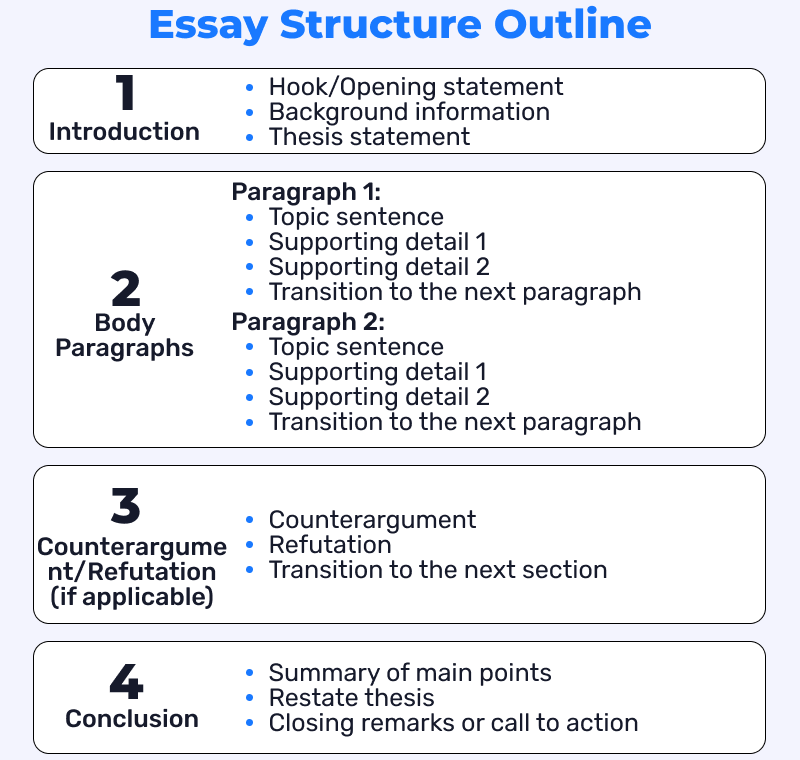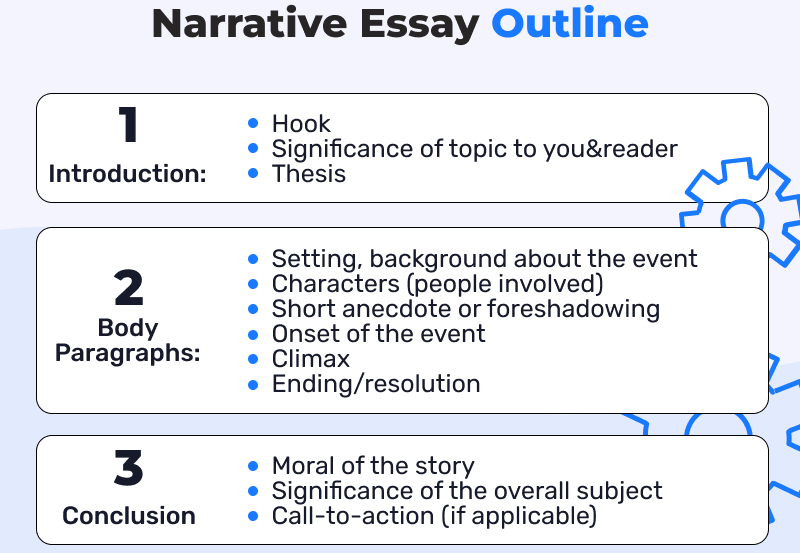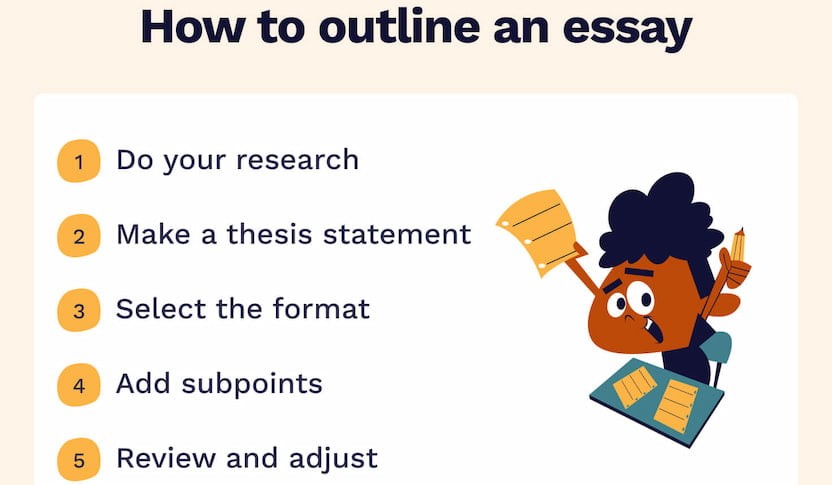The nursing essay outline is your roadmap to success. It's not just a list of ideas, but a carefully structured framework that ensures your essay is clear, concise, and compelling. This document will guide you through the process of creating a nursing essay outline, equipping you with the tools to navigate the complex world of academic writing and showcase your passion for the field.
Why is a Nursing Essay Outline Crucial?
A well-structured nursing essay outline is the foundation of a strong essay. It provides a clear direction for your writing and helps you organize your thoughts into a logical and coherent flow. The outline ensures that your essay:
- Focuses on the main argument: It keeps you on track, preventing you from going off on tangents and ensuring your essay stays focused on the central theme.
- Develops a clear structure: It provides a roadmap for your essay, allowing you to organize your ideas logically and effectively.
- Provides a visual representation: It enables you to see the structure of your essay at a glance, allowing you to make changes and refine your arguments before you start writing.
- Saves time and effort: By preplanning your essay, you eliminate the need to constantly revise and rewrite, saving you valuable time and effort.
Step-by-Step Guide to Creating a Stellar Nursing Essay Outline
1. Understanding the Prompt:
Begin by carefully reading and analyzing the nursing essay prompt. Deconstruct it to identify the key words, the specific requirements, and the expected scope of your essay. Ask yourself:
- What is the essay question asking me to do?
- What are the key concepts or topics that need to be addressed?
- What are the specific requirements for the essay, such as word count, formatting, and citation style?
2. Brainstorming and Research:
Once you understand the prompt, brainstorm and research to gather relevant information and supporting evidence. Use techniques like freewriting, mind mapping, or concept mapping to generate ideas.
- Note down all relevant information: Compile facts, statistics, case studies, and personal experiences that support your arguments.
- Gather credible sources: Ensure you use reputable sources like academic journals, textbooks, and professional organizations for your research.
3. Developing a Thesis Statement:
Your thesis statement is the central argument of your nursing essay. It should be clear, concise, and answer the essay prompt directly.
- Formulate a strong thesis statement: It should be a single sentence that summarizes your main argument and provides a clear direction for your essay.
- Refine and refine: Ensure your thesis statement is specific, arguable, and relevant to the essay prompt.
4. Structuring the Nursing Essay Outline:
A typical nursing essay outline follows the traditional five-paragraph structure:

- Introduction:
- Hook: Start with a compelling anecdote, surprising statistic, or thought-provoking question.
- Background information: Provide necessary context and background information to establish the importance of the topic.
- Thesis statement: Clearly state your main argument.
- Body Paragraph 1:
- Topic sentence: Introduce the first supporting argument.
- Supporting evidence: Present specific examples, statistics, or case studies to support your argument.
- Explanation: Analyze the evidence and connect it to your thesis statement.
- Transition sentence: Lead smoothly into the next paragraph.
- Body Paragraph 2:
- Topic sentence: Introduce the second supporting argument.
- Supporting evidence: Present specific examples, statistics, or case studies to support your argument.
- Explanation: Analyze the evidence and connect it to your thesis statement.
- Transition sentence: Lead smoothly into the next paragraph.
- Body Paragraph 3:
- Topic sentence: Introduce the third supporting argument.
- Supporting evidence: Present specific examples, statistics, or case studies to support your argument.
- Explanation: Analyze the evidence and connect it to your thesis statement.
- Transition sentence: Lead smoothly into the conclusion.
- Conclusion:
- Restate thesis statement: Briefly reiterate your main argument.
- Summarize key points: Briefly restate the main supporting arguments.
- Final thought: Leave the reader with a lasting impression or call to action.
5. Refine and Revise the Nursing Essay Outline:
Once you have a complete outline, take the time to review and refine it. This step ensures a coherent and compelling essay.
- Check for logical flow: Ensure the arguments are presented in a logical order, building upon each other to strengthen your case.
- Revise and rearrange: Move sections around, add or remove points, and ensure that each paragraph supports the main argument.
- Be specific and clear: Make sure that each point is clearly stated and supported by specific evidence.
Essential Elements of a Stellar Nursing Essay Outline:
- Strong thesis statement: The central argument of your essay, clearly stated and relevant to the prompt.
- Logical organization: A clear structure that ensures the flow of ideas is logical and easy to follow.
- Supporting evidence: Specific examples, statistics, case studies, and research findings to back up your arguments.
- Professional tone: Use clear and concise language that reflects the seriousness of the nursing profession.
- Coherent transitions: Smooth transitions between paragraphs to ensure a seamless flow of ideas.
Tips for Creating a Stellar Nursing Essay Outline:
- Start early: Avoid procrastination and begin outlining your essay well in advance of the deadline.
- Break down the task: Divide the essay into manageable sections and focus on completing one section at a time.
- Use visual aids: Mind maps, concept maps, or flowcharts can help you visualize the structure of your essay.
- Ask for feedback: Share your outline with a classmate, professor, or writing tutor for feedback and suggestions.
- Be flexible: Don't be afraid to revise your outline as you write.
Examples of Nursing Essay Outline Templates
- Compare and Contrast Essay:
- Introduction: Introduce two nursing theories and state your thesis about their similarities and differences.
- Body Paragraph 1: Focus on the similarities between the two theories, providing supporting evidence and examples.
- Body Paragraph 2: Focus on the differences between the two theories, providing supporting evidence and examples.
- Conclusion: Summarize the key points and reiterate your thesis, emphasizing the significance of your analysis.
- Argumentative Essay:
- Introduction: Introduce the issue and state your thesis, arguing for a specific position on the topic.
- Body Paragraph 1: Present your first argument, providing supporting evidence and examples.
- Body Paragraph 2: Present your second argument, providing supporting evidence and examples.
- Body Paragraph 3: Address and refute counterarguments to strengthen your position.
- Conclusion: Summarize the key points and reiterate your thesis, emphasizing the importance of your argument.
- Personal Narrative Essay:
- Introduction: Introduce the experience and state your thesis, explaining the significance of the experience for your nursing journey.
- Body Paragraph 1: Describe the experience in detail, using vivid language and sensory details.
- Body Paragraph 2: Analyze the experience, reflecting on the lessons learned and its impact on your personal and professional growth.
- Body Paragraph 3: Connect the experience to your nursing career goals and aspirations.
- Conclusion: Summarize the key points and reiterate your thesis, emphasizing the significance of the experience for your future as a nurse.

Common Mistakes to Avoid in Nursing Essay Outline Writing
While a nursing essay outline is a valuable tool, it's important to be mindful of common mistakes that can derail your efforts. Avoiding these pitfalls will ensure a well-structured, impactful essay:
1. Neglecting the Prompt:
The foundation of a strong nursing essay outline is a thorough understanding of the prompt. Failing to grasp its nuances can lead to an essay that misses the mark.
- Misinterpreting the question: Ensure you understand the specific task being asked. Are you being asked to analyze, compare, argue, or reflect?
- Ignoring specific requirements: Pay attention to word count limits, formatting guidelines, and citation style instructions.
2. Lack of a Clear Thesis Statement:
A thesis statement is the backbone of your essay. Without a strong, focused statement, your argument will lack direction and impact.
- Vagueness: Avoid broad or general statements. Your thesis should be specific, answerable, and directly relevant to the prompt.
- Weak argument: Ensure your thesis is not merely a statement of fact but a claim that requires supporting evidence and analysis.
3. Unorganized or Irrelevant Information:
A nursing essay outline should guide your essay's structure. Failing to organize your information strategically can result in a confusing and disjointed essay.
- Random ideas: Avoid including points that are not directly related to your thesis statement or the prompt.
- Lack of logical flow: Ensure your points follow a logical progression, building upon each other to create a cohesive argument.
4. Insufficient Evidence and Support:
Claims made in your nursing essay must be backed up with credible evidence. Inadequate research and support can weaken your argument and make your essay less convincing.
- Anecdotal evidence: While personal experiences can be valuable, they should be used sparingly and in conjunction with research-based evidence.
- Unreliable sources: Use only reputable sources like academic journals, textbooks, and professional organizations. Avoid relying on biased or outdated information.
5. Overlooking the Conclusion:
The conclusion should effectively tie together the points made throughout your essay and leave a lasting impression. A weak conclusion undermines the impact of your argument.
- Repetition: Avoid simply restating your thesis. Instead, summarize key points and draw insightful conclusions based on the evidence presented.
- Lack of finality: End your essay with a clear and impactful closing statement.
6. Neglecting Revision and Proofreading:
Even a well-structured nursing essay outline requires refinement before writing. Ignoring revision and proofreading can result in errors that detract from your essay's quality.
- Overlooking inconsistencies: Review your outline for logical flow, clarity, and coherence.
- Ignoring grammatical and spelling errors: Proofreading for grammar, punctuation, and spelling errors is crucial for a professional and polished essay.
7. Lack of Personal Reflection (for Personal Narrative Essays):
When writing a personal narrative essay, the focus should be on your personal growth and insights gained from the experience. Avoiding this aspect can make your essay less impactful.
- Shallow reflection: Go beyond simply recounting the event. Analyze your thoughts, feelings, and actions, and explain how the experience shaped you.
- Missing the connection to nursing: Ensure you connect the experience to your nursing goals and aspirations, showing how it will benefit your future career.
Avoiding these common mistakes will ensure that your nursing essay outline provides a solid foundation for a strong and effective essay. Remember that creating a clear, concise, and well-supported nursing essay outline is an essential step towards achieving academic success.
Final Thoughts:

Creating a nursing essay outline is a crucial step in the writing process. It ensures that your essay is well-structured, clear, and compelling. By following the steps outlined in this guide and incorporating the tips provided, you can craft a stellar nursing essay outline that will help you succeed in your academic endeavors. Remember that a strong outline is a roadmap to a successful nursing essay, helping you present your ideas effectively and showcase your passion for the nursing profession.
Remember, the nursing essay outline is your guide to success. Use it wisely and confidently, and watch your nursing essay soar to new heights.
Get Customized Nursing Essay Writing Help
At Exemplary Dissertations, we can help you to develop a stellar nursing essay outline and, also craft the paper to your specific demands and goals. We offer professional nursing essay writing help for undergraduate, Degree, Master’s and PhD. Our writers can also assist you with writing nursing research papers, case studies and dissertations.